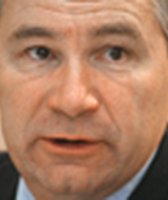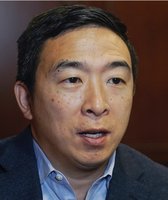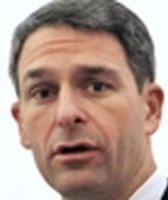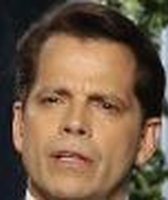Get PolitiFact in your inbox.
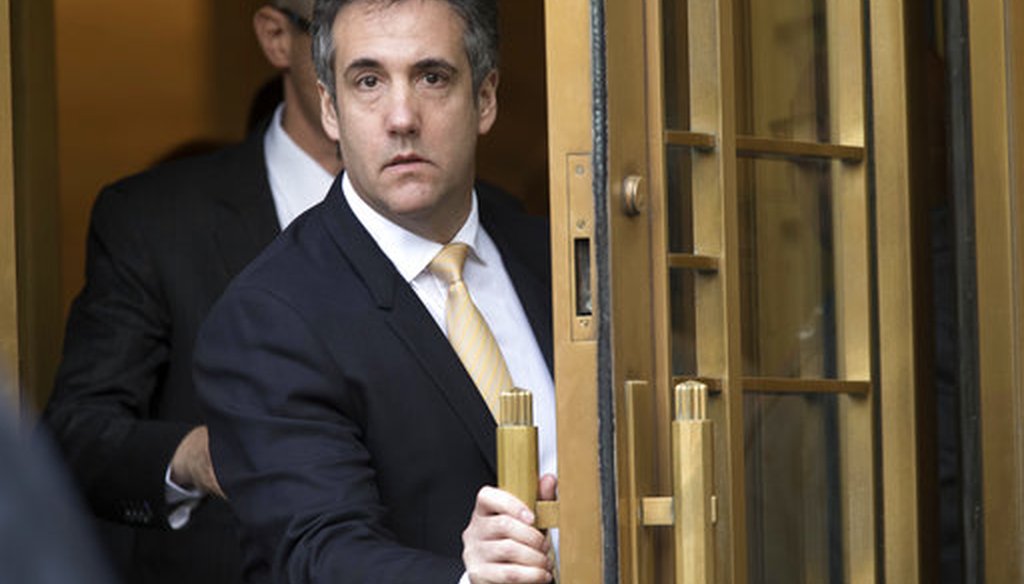
Michael Cohen, former personal lawyer to President Donald Trump, leaves federal court, Aug. 21, 2018, in New York. (AP Photo/Mary Altaffer)
Michael Cohen, President Donald Trump’s longtime lawyer and fixer, pleaded guilty in federal court to a series of criminal charges, including a campaign finance law violation that implicated the president.
In a plea deal with federal prosecutors in the Southern District of New York, Cohen admitted to eight counts of breaking tax, banking and campaign finance laws. He faces up to five years in prison.
The most striking revelation was Cohen’s claim that a 2016 presidential candidate — Trump — directed him to pay hush money in exchange for two women’s silence about alleged affairs. Cohen said the payments were meant to influence the 2016 election, and were made "in coordination with and at the direction of a candidate for federal office."
Though Cohen did not identify Trump by name, shortly after his court appearance, his attorney Lanny Davis said that Trump ordered payments for the "principle purpose" of influencing the 2016 presidential election.
"Today he stood up and testified under oath that Donald Trump directed him to commit a crime by making payments to two women for the principal purpose of influencing an election," Davis said of his client on Twitter. "If those payments were a crime for Michael Cohen, then why wouldn't they be a crime for Donald Trump?"
Today he stood up and testified under oath that Donald Trump directed him to commit a crime by making payments to two women for the principal purpose of influencing an election. If those payments were a crime for Michael Cohen, then why wouldn't they be a crime for Donald Trump?
— Lanny Davis (@LannyDavis) August 21, 2018
The two women were not identified by name. But they are believed to be adult film actress Stormy Daniels and former Playboy Playmate Karen McDougal, both of whom claim to have had sexual relationships with Trump in the mid 2000s while he was married to wife Melania.
The court filing against Cohen details his role in a scheme to keep stories of Trump’s alleged infidelities under wraps ahead of the 2016 vote.
According to prosecutors, Cohen set in motion a deal in August 2016 whereby American Media Inc., the parent company of the tabloid the National Enquirer, paid McDougal $150,000 to buy her story (but not publish it), and give her future media exposure.
The tactic of buying the exclusive rights to an unflattering story to prevent its publication is known as "catch-and-kill."
Prosecutors said the agreement’s "principal purpose, as understood by those involved, including Michael Cohen, the defendant, was to suppress Woman-1′s story so as to prevent it from influencing the election."
A month before the election, Cohen struck a similar deal with Daniels in the amount of $130,000. Prosecutors said the Trump Organization ultimately reimbursed Cohen for the payment.
The court filings, as well as Cohen’s sworn testimony, added a new layer to the Trump team’s series of shifting accounts about Trump’s role in financing hush money payments ahead of the election.
There’s no clear answer to the question of whether a sitting president can be criminally indicted. But experts said the hush money payments are unlikely to ensnare Trump in a criminal case.
"President Trump still does not appear to be in any legal jeopardy," said Ric Simmons, a law professor at the Ohio State University.
For Trump to be charged, Attorney General Jeff Sessions would probably need to a waive a long-standing Justice Department policy against indicting a sitting president.
"In any other situation, the statements under oath by Cohen during his plea allocution would lead to an investigation and almost certainly an indictment of the candidate who directed the illegal activity," Simmons said.
Some experts say Trump now figures as an "unindicted co-conspirator" in the campaign finance violation — a term that was used to describe President Richard Nixon’s role in the Watergate scandal.
The biggest threat Trump faces may prove to be political, rather than criminal.
"The primary threat to President Trump is that Robert Mueller will return a report that substantiates a recommendation for impeachment," said Mark Osler, a law professor at the University of St. Thomas and a former assistant U.S. attorney.
If that happened, the focus would turn to Deputy Attorney General Rod Rosenstein, who could choose to forward the special counsel’s recommendation to the U.S. House of Representatives. (Rosenstein would act in place of Attorney General Jeff Sessions, who is recused from the special counsel probe.)
The threat of impeachment would be more acute if the midterm elections give Democrats control of the House, the body responsible for filing articles of impeachment. Impeachment proceedings are tried in the Senate, where Republicans hold a slim 51-seat majority.
While the question of Trump’s criminal liability in light of Cohen’s conviction falls into a legal gray area, the new developments seem to bolster civil cases brought by Trump’s accusers.
"His plea adds saliency and support to civil lawsuits brought by Stormy Daniels and Karen McDougal," said David Schultz, a political science professor at Hamline University.
It’s unknown if Cohen has or will cooperate with the special counsel or prosecutors to seek a lighter sentence. Right now, there’s no publicly available information showing he’s done so.
But experts said Cohen most likely could not have struck a plea deal unless he was at least willing to cooperate — either with Mueller or prosecutors pursuing unrelated matters.
"A substantial part of Cohen's cooperation may have already taken place," Osler said. "A prosecutor is unlikely to bargain for specific sentencing provisions unless that has happened."
It’s important to underscore that Cohen’s conviction bore no direct relationship to Moscow’s interference in the 2016 election, or the Trump campaign’s ties to Russia.
But it’s not so far-fetched to think these cases could intersect, especially if Cohen has knowledge of the campaign’s communications with Russian operatives.
"One possibility is that he has already proferred information to Mr. Mueller's team," Osler said. "They may know from that what he would be able to offer in testimony at a trial, either in federal court or the U.S. Senate in the case of impeachment."
Even though Cohen is not being prosecuted by Mueller, he can still work with the special counsel’s team, which could lighten his sentence.
To do this, prosecutors in the Southern District — which has jurisdiction over Cohen’s case — could indicate that any help Cohen provides to the special prosecutor would result in a lower sentence recommendation, Simmons said. In the world of criminal law, cooperation across jurisdictions is fairly common, he added.
"The extent of cooperation probably depends on how much Cohen knows about the issues that the special counsel is investigating," Simmons said. "He may know nothing about the possible conspiracy with Russian agents, in which case the special prosecutor may not have any use for him."
Even if Cohen does not cooperate with Mueller, his case could still bear on the special counsel’s investigation in another way.
The FBI seized a large number of documents from Cohen, an attorney, during its criminal investigation. A special judge recently ruled "the vast majority of them are not protected by attorney-client privilege," Simmons said.
"These documents may contain incriminating information about Trump that the Southern District prosecutor could use or — more likely — pass on to the special prosecutor," he added.
Our Sources
PolitiFact, "The timeline of Donald Trump’s explanations for the Stormy Daniels payment," May 3, 2018
PolitiFact, "A closer look at payments to Donald Trump's lawyer Michael Cohen," May 18, 2018
Lawfare, "Document: Michael Cohen Plea Agreement," Aug. 22, 2018
Email from David Schultz, political science professor at Hamline University, Aug. 22, 2018
Email interview with Mark Osler, law professor at the University of St. Thomas and former assistant U.S. attorney, Aug. 22, 2018
Email interview with Ric Simmons, law professor at the Ohio State University, Aug. 22, 2018














